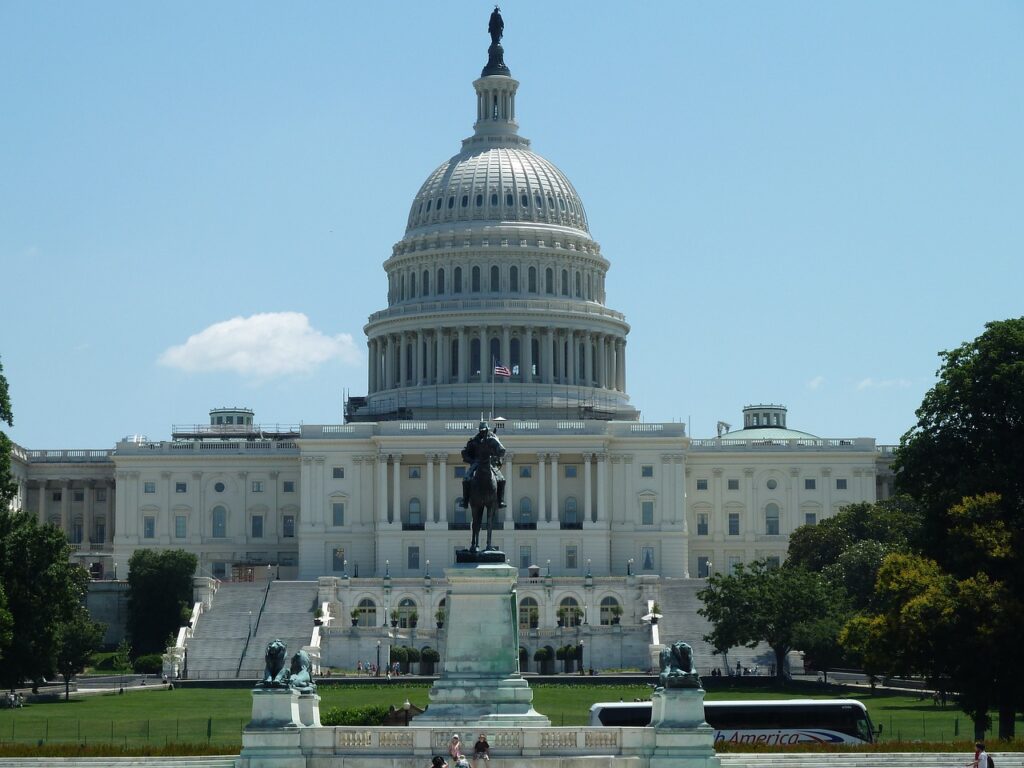Senate Passes Funding Bill, Rejecting Trump’s Debt Ceiling Proposal
The US Senate approved a stop-gap funding bill late Friday, preventing a government shutdown. The measure excluded president-elect Donald Trump’s demand to suspend the federal debt ceiling. Passed 38 minutes after the midnight deadline, it avoided any disruption to government operations and now awaits President Joe Biden’s signature.
The Senate approved the bill in an 85-11 vote, following a bipartisan 366-34 vote in the House earlier in the day. The legislation extends federal funding at current levels while adding $100 billion in disaster aid and $10 billion for farmers.
Government Shutdown Averted
The White House welcomed the bill, emphasizing its importance in avoiding a shutdown just before the holiday season.
Democratic leader Hakeem Jeffries called the funding measure “a victory for the American people.” He noted that Democrats provided the majority of the support to advance the bill, highlighting their role in averting economic and social disruption.
Without this agreement, a government shutdown would have left thousands of federal employees furloughed and caused chaos during holiday travel. The last shutdown, in December 2018, lasted 35 days and became the longest in US history.
Trump’s Debt Ceiling Push Rejected
Trump’s attempt to include a suspension of the federal debt ceiling in the funding package faced strong opposition. He argued that eliminating borrowing limits during Biden’s presidency would avoid a difficult battle early in his term.
However, critics condemned the proposal as a tactic to benefit wealthy allies like Elon Musk while increasing the national debt. A pared-down bill including the debt ceiling suspension, introduced by House Speaker Mike Johnson, failed in the House by 174-235, delivering a political setback for Trump.
Elon Musk’s Role in the Controversy
Elon Musk, a vocal Trump ally, fueled controversy by criticizing the original bipartisan funding bill. On social media, he falsely claimed the bill included a 40% pay raise for lawmakers and $3 billion for an NFL stadium.
His involvement deepened Republican divisions, with some jokingly suggesting he should replace Johnson as House Speaker. Democrats mocked Musk’s influence, with Representative Rosa DeLauro accusing him of creating chaos in Congress.
Despite the backlash, Musk later praised Johnson’s efforts, calling them “a good job given the circumstances.”
The Path Ahead for Republicans
With the debt ceiling suspension off the table, Trump faces a politically charged issue as he prepares to take office. Speaker Johnson called the funding bill a temporary solution, stating, “This is a necessary step to bridge the gap” for longer-term fiscal decisions in 2025.
Johnson also promised significant changes under unified Republican control, signaling stricter fiscal policies ahead. However, the week’s events exposed deep divisions within the party, raising questions about their ability to govern cohesively.
As Republicans look to the future, the unresolved debt ceiling debate and internal conflicts suggest challenging times ahead. The party must navigate these tensions to deliver on its promises and maintain unity.
